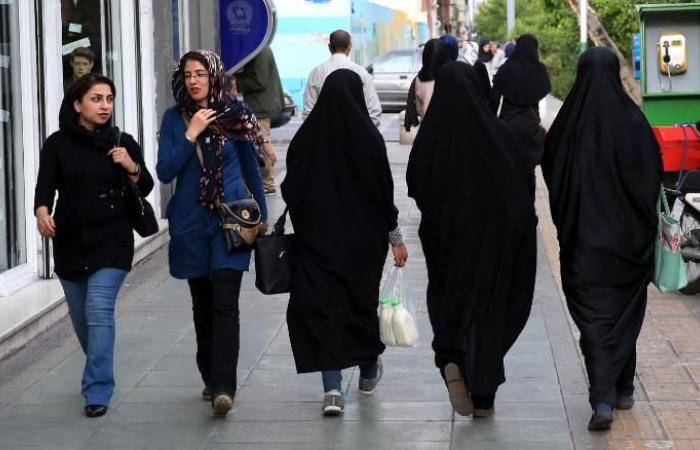Iran, the controversial “law on hijab and chastity” suspended. United States: Donald Trump promises there will only be two genders by law. Morocco: society is changing, more and more women are heads of families.
Iran's National Security Council has suspended the implementation of the controversial “hijab and chastity law”, which was supposed to come into force in recent days.
She tells it BBC.
The new law
President Massoud Pezeshkian called the legislation “ambiguous and in need of reform,” signaling his intention to reevaluate its measures.
The proposed new law, which would introduce tougher punishments for women and girls who expose their hair, forearms or lower legs, has been heavily criticized by rights activists and activists.
Strict dress codes imposed on women and girls, which have been treated as a national security priority by the rulers of the Islamic Republic of Iran for decades, have previously sparked protests.
Under the new law, repeat offenders and anyone who flouts the rules would be punished with heavier fines and longer prison sentences, up to 15 years of prison.
The law would also have required companies to report anyone who violates the rules.
The alarm
TOPSHOT – A protestor holds a slogan against the death penalty during a rally in Lyon on January 8, 2023 against the Iranian regime, marking third anniversary of the downing of Ukrainian passenger jet, flight PS752 by Iranian forces shortly after it’s takeoff from Tehran and to pay tribute to Mohammad Moradi, an Iranian student who committed suicide by drowning himself in the Rhone River in December 2022 to draw attention to the situation in Iran. (Photo by JEAN-PHILIPPE KSIAZEK / AFP) (Photo by JEAN-PHILIPPE KSIAZEK/AFP via Getty Images)
Human rights groups had expressed alarm.
Amnesty International said Iranian authorities were “trying to consolidate the already suffocating system of repression”.
During July's presidential election, then-candidate Pezeshkian openly criticized the treatment of Iranian women over the hijab issue.
He promised not to interfere in their personal lives, a position that resonated with many Iranians, especially among younger generations frustrated by tight government control.
Masoumeh Ebtekar, former vice president for women and family affairs, also criticized the law.
“The new legislation is an indictment of half the Iranian population.”
The challenges
The hijab debate gained further momentum in recent weeks when Parastoo Ahmadi, a popular Iranian singer, was arrested after streaming a virtual concert on YouTube with no audience present, without wearing a hijab.
The concert quickly went viral, and the arrest of Ahmadi and her bandmates sparked widespread backlash.
Faced with public protests, the authorities released them the following day.
Tensions around the hijab have remained high since the 2022 nationwide protests sparked by the death of Mahsa “Zhina” Amini, a young Kurdish woman who died in police custody after being arrested for allegedly violating the dress code.
Over the past two years, many young Iranian women have defiantly removed their hijabs in public, challenging the government's authority.
Last week, more than 300 Iranian human rights activists, writers and journalists have publicly condemned the new hijab law, calling it “illegitimate and unenforceable” and urged Pezeshkian to honor his campaign promises.
Despite pressure from intransigent factions close to Supreme Leader Ayatollah Ali Khamenei, many young people in Iran appear not to be afraid to face the regime's restrictions.
Pezeshkian supporters believe the new hijab law will not discourage young women from challenging it and could even make the situation worse.
But those who support the legislation have pressured the president to move forward, criticizing the National Security Council's hesitation and calling on him to sign the law to clear the way for its implementation.
The decision to suspend its implementation suggests the government fears it could trigger another wave of mass protests, like those seen two years ago.
President-elect Donald Trump has vowed to immediately stop the “transgender madness” and make it “official policy” to recognize only two genders, male and female.
“With the stroke of a pen from day one, we will stop the transgender madness,” Trump told supporters at AmericaFest 2024 in Phoenix, Arizona, according to a video shared by C-Span.
“I will sign executive orders to end child sexual mutilation, to get transgender people out of the military and out of our elementary, middle and high schools,” he said, drawing applause from the crowd.
Il National Defense Authorization Act
The Senate passed the National Defense Authorization Act (NDAA). 1.800 pages by a vote of 85-14, moving the measure to President Joe Biden's desk.
Each fiscal year, which begins October 1, Congress is tasked with passing the NDAA to authorize defense spending and specify expenditures.
This year's law arrives two months late and amounts to approximately1% more than last year's budget.
While NDAAs have historically garnered bipartisan support, Republican forces managed to pass the transgender health care provision, much to the chagrin of the Democratic party.
Specifically, the NDAA prevents military health care provider Tricare from footing the bill for “gender transition” coverage for sons and daughters of military personnel under the age of 18.
Twenty-one Democratic senators, led by Sen. Tammy Baldwin (D-Wis.), voted against the provision, which Baldwin said would impact between 6,000 and 7,000 sons and daughters of military personnel.
There are about 10mila transgender youth ages 6 to 22 with parents active in the military, according to an estimate from the Modern Military Association of America.
The structure and growth of families in Morocco have undergone notable changes over the past decade, with more women heading families and an increase in single-parent families.
These findings, part of the 2024 census, were shared by Chakib Benmoussa, the High Commissioner for Planning.
It revealed that the percentage of female-headed households has increased since 16,2% in 2014 at 19,2% in 2024.
This means that women are in charge of beyond 1.77 million of families in Morocco.
The increase was recorded in both urban and rural areas.
The number has grown since11,6% al 14,5% in rural areas, while it has increased since 18,6% al 21,6% in urban areas in the same period.
Benmoussa also noted growth in single-family households, the share of which has risen since 7,2% in 2014 at11,1% in 2024.
At the same time, larger families of four or more members have declined since 66,5% al 57,2%.
Meanwhile, families of two or three people have increased since 26,1% al 31,7% in the last decade.
As of September 1 this year, the total number of households in Morocco reached 9.27 millionincreasing compared to 7.31 million of 2014.
But the growth rate has slowed.
The average annual growth rate for the number of families was 2,4% between 2014 and 2024, compared to 2,6% of the previous period from 2004 to 2014.
The census conducted in September revealed that the country's population stands at 36.8 million of people, with five regions representing the 70% of the population.
These include the region of Casablanca-Settat with 7,689,000 citizens, followed by Rabat-Sale-Kenitra (5,133,000), Marrakech-Safi (4,892,000), Fez-Meknes (4,468,000) and Tangier-Tetouan Al Hoceima (4,030,000).
You might also be interested in:
And if you believe in independent, serious journalism that tells the world by going there, you can help us by clicking on Support us






